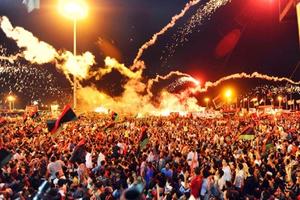Arab SpringArab Spring protests an isolated occurrence, not new Arab world trend
As the long-term impact of the Arab Spring continues to take shape, researchers warn that the protests that swept across the Middle East and North Africa could mark more of an isolated occurrence than a permanent rise of people power in the region.

The hopes that rode the Arab Spring turned out to be false hope of real change // Source: duke.edu
As the long-term impact of the Arab Spring continues to take shape, research from political scientists at Princeton University and New York University warns that the protests that swept across the Middle East and North Africa could mark more of an isolated occurrence than a permanent rise of people power in the region.
A Princeton University release reports that in a paper published by the American Journal of Political Science, Princeton politics professor Adam Meirowitz and New York University politics professor Joshua Tucker lay out a theoretical model that helps answer a real-world question: Why do people who take on the considerable costs and risks of protesting to change the type of government in their country sometimes stay off the streets when the new government turns out to be just as bad — or worse?
“The answer we came up with is that maybe they learned something. Not just that the new government was bad but that in this new democratic world maybe all the governments are likely to be corrupt,” said Meirowitz, the John Work Garrett Professor in Politics at Princeton and director of the Graduate Program in Political Economy. “Generally, your willingness to absorb the cost of protesting in the face of failure is going to diminish over time. You have two choices: absorb the costs and go to the streets or just walk around unhappy. After enough bad governments, it’s just easier to stay home and be unhappy.”
The innovation in the theory and the paper, Meirowitz said, is the emphasis on what people in countries that are moving from a nondemocratic regime toward democracy learn about all possible democratic governments if their first — or first few — are “bad,” which could mean unable to obtain results, sloppy, uninterested in citizen welfare or willing to engage in corruption.
To illustrate the idea, Meirowitz said, imagine that the nature of a new government is determined by a protester simply drawing a piece of paper from a hat. The paper might say “good” or it might say “bad.”
Before the first draw, the protester knows nothing about the likelihood of drawing “good” as opposed to “bad.” If the first draw is “bad,” however, that result affects what the protester expects in the next draw. If the protester continues to draw “bad” each time, the protester has less and less uncertainty about what is coming next.
This is the situation people new
